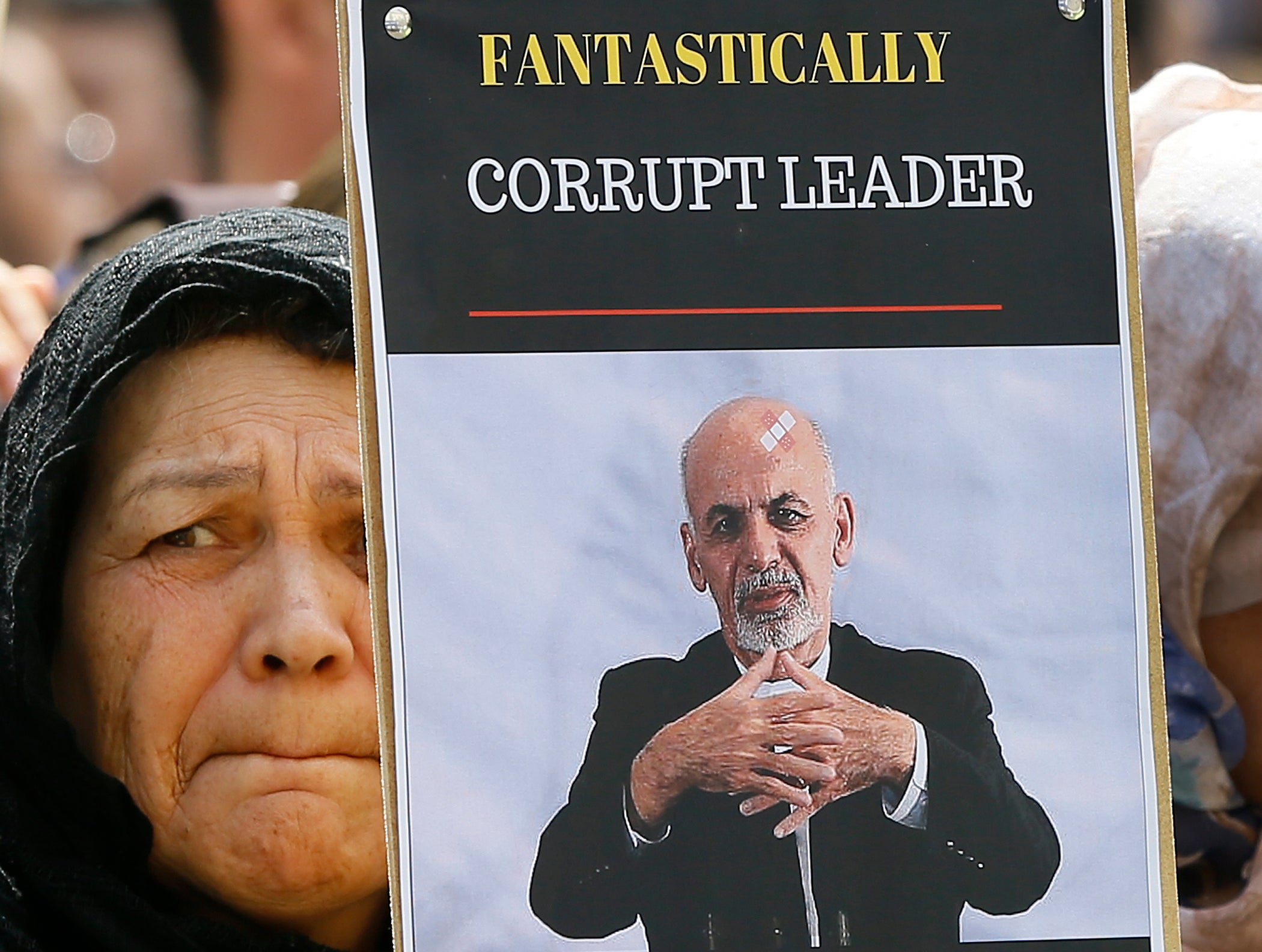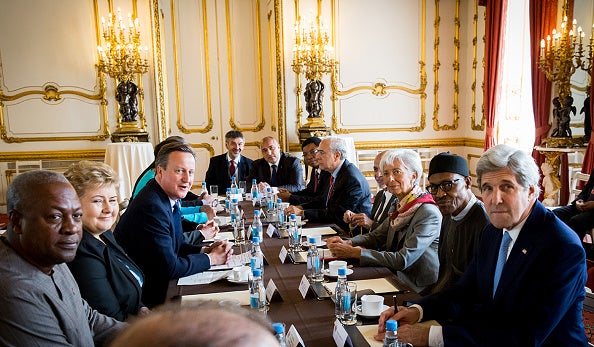David Cameron's 'fantastically corrupt' gaffe mocked by Afghan delegation at Anti-Corruption Summit
The Afghani delegation signed an anti-corruption pledge, which was ignored by every British overseas territory

Your support helps us to tell the story
From reproductive rights to climate change to Big Tech, The Independent is on the ground when the story is developing. Whether it's investigating the financials of Elon Musk's pro-Trump PAC or producing our latest documentary, 'The A Word', which shines a light on the American women fighting for reproductive rights, we know how important it is to parse out the facts from the messaging.
At such a critical moment in US history, we need reporters on the ground. Your donation allows us to keep sending journalists to speak to both sides of the story.
The Independent is trusted by Americans across the entire political spectrum. And unlike many other quality news outlets, we choose not to lock Americans out of our reporting and analysis with paywalls. We believe quality journalism should be available to everyone, paid for by those who can afford it.
Your support makes all the difference.David Cameron didn't care that Afghanistan was "fantastically corrupt" when he helped to pour billions of pounds of investment, military infrastructure and misplaced aid into the country, a senior Afghan official pointed out yesterday.
The unnamed official was responding to Mr Cameron's gaffe on the eve of his much-vaunted Anti-Corruption Summit. The PM was overheard saying: "We’ve got the leaders of some fantastically corrupt countries coming to Britain. Nigeria and Afghanistan, possibly the two most corrupt countries in the world.”
Speaking at the conference the next day, the senior member of the Afghan delegation reminded Mr Cameron that clumsy Western intervention in Afghanistan allowed corruption to flourish. He said: "We inherited, and I quote, a 'fantastically corrupt' system.
"In my country for the past decade there have been enthusiastic international community partnerships willing to pour in billions into a country without thinking about the safeguards that were needed in order to ensure that money would be spent transparently and effectively."
Since the turn of the century, the key driver of corruption in Afghanistan has been the war fought between the Afghan security forces and a US-led coalition on one side and the Taliban on the other.
In February 2014, an internal report by the Pentagon suggested that the coalition had aided and abetted corruption by supporting warlords, bankrolling lucrative private trucking contracts and routing aid via corrupt officials rather than supporting grassroots humanitarian work.

And according to a 2012 survey by the Asia Foundation, the average Afghan considers the period of rule under Hamid Karzai from 2001 onwards to have been more corrupt than any of the previous five regimes.
The former president worked closely with the American government, but many Afghans perceive this relationship as responsible for an explosion in systemic corruption.
The Taliban was thus able to garner support from Afghan citizens, the authors of the report suggest, by offering an alternative to a corrupt system where mujahideen warlords raked in cash from the invading forces and subsequent aid efforts.
After the US, the United Kingdom was the largest contributor to the 13-year-long Operation Enduring Freedom, and Mr Cameron was commander-in-chief of British forces in the country from 2010 until the official end of the war 2014. The UK continues to send around £200 million annually in aid to Afghanistan.
The amount of opium being produced also increased as much as threefold following the coalition invasion, which further entrenched corruption into Afghan society as officials and security forces were paid off. Afghan President Ashraf Ghani used his speech at the summit to remind Mr Cameron that 96 per cent of the profits from the Afghan drug trade are laundered in Europe.
At the summit Mr Cameron was not able to to convince a single British overseas territory to agree to publish details of who really owns companies registered in their jurisdiction. Afghanistan and Nigeria both pledged to publish this information.
Join our commenting forum
Join thought-provoking conversations, follow other Independent readers and see their replies
Comments